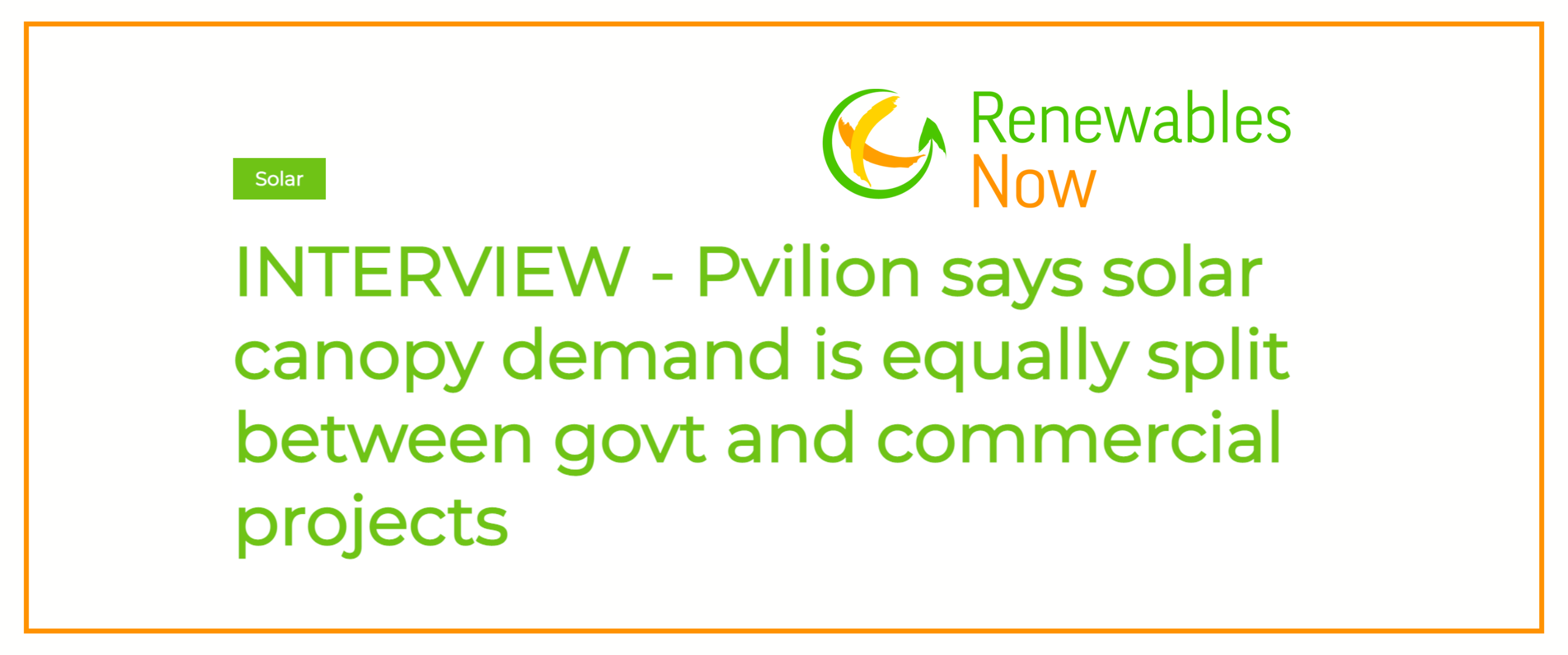Renewables Now | May 11, 2023 | By Plamena Tisheva
Will canopies with embedded solar cells become a common sight? A New York-based company active in this niche market tells Renewables Now there is more demand than ever before, especially after the pandemic sparked a greater focus on outdoor spaces.

Solar for Hospitality. Image by Pvilion.
Functional and mobile outdoor shelter with its own power is becoming essential in many settings, including disaster response and military conflicts, but also dining and events, Julia Fowler, Pvilion’s marketing lead, explains. The company specialises in integrating solar cells, mostly monocrystalline, into a fabric composite. It then creates various products such as solar military tents, stand-alone solar canopies or grid-tied long span structures.
“We have disaster response canopy projects throughout New York City, a hurricane resiliency hub in Miami, Florida, and Solar Powered Integrated Structures for emergency response utilised by the US Air Force around the globe. They have been used in a variety of disaster relief settings, including a recent application at a Ukrainian refugee camp in Poland this past summer. The tent systems were used as a summer camp classroom for Ukrainian refugee children, providing a safe space for the children to gather, learn, and have fun during their summer camp activities.”

The company draws on the expertise of its three co-founders – Colin Touhey, an electrical engineer, Todd Dalland, a lightweight structures designer, and Robert Lerner, who led programmes to develop lightweight deployable structures for NASA and the US Army.
At present, Pvilion’s projects are evenly divided between the government and commercial segments.
“We expect the demand to remain relatively even between these two markets, as the need for power and shelter remains essential to both sectors. This is why we have a commercial line that specialises in balancing aesthetic designs with functionality and power, and a separate ‘Solar Powered Integrated Structure’ line that prioritises high power output, mobility, and rapid shelter,” says Fowler.
The power capabilities of the products depends on the application. A tool on the company’s website enables clients to customise the power output for their needs. “For some outdoor dining applications, only a small amount of power may be needed to power lighting and phone charging. For military and emergency response applications, our solar kits can fully power aircraft control towers, 5G cell towers, heating and cooling systems, and water filtration systems, with no need for generators.”
The company notes that during a recent week-long trial run by the Air Force, all test cases resulted in zero fuel consumption.
Pvilion has also partnered with US event tent manufacturer Anchor Industries to offer clip-on solar fabric attachments for event tents. These attachments, combined with its clean battery kits, can replace loud and polluting diesel generators for different events.
Demand for the company’s product can receive a boost from the recent passage of the Inflation Reduction Act and in particular the extension of the Investment Tax Credit (ITC). This credit applies to the entire structure, including installation, so customers can receive a 30% discount on their entire purchase for the next 10 years, the New York firm explains.
One of the projects Pvilion is working on this year is the provision of emergency resiliency canopies for Nos Quedamos, a Community Development Corporation is South Bronx, New York City, whose most recent initiative is to enhance community gardens that were formerly abandoned lots. Pvilion’s solar canopies will be installed in three different locations and will offer back-up power, as well as power for lights, chargers or community events.
To view the original article, click here.
 news + press
news + press
